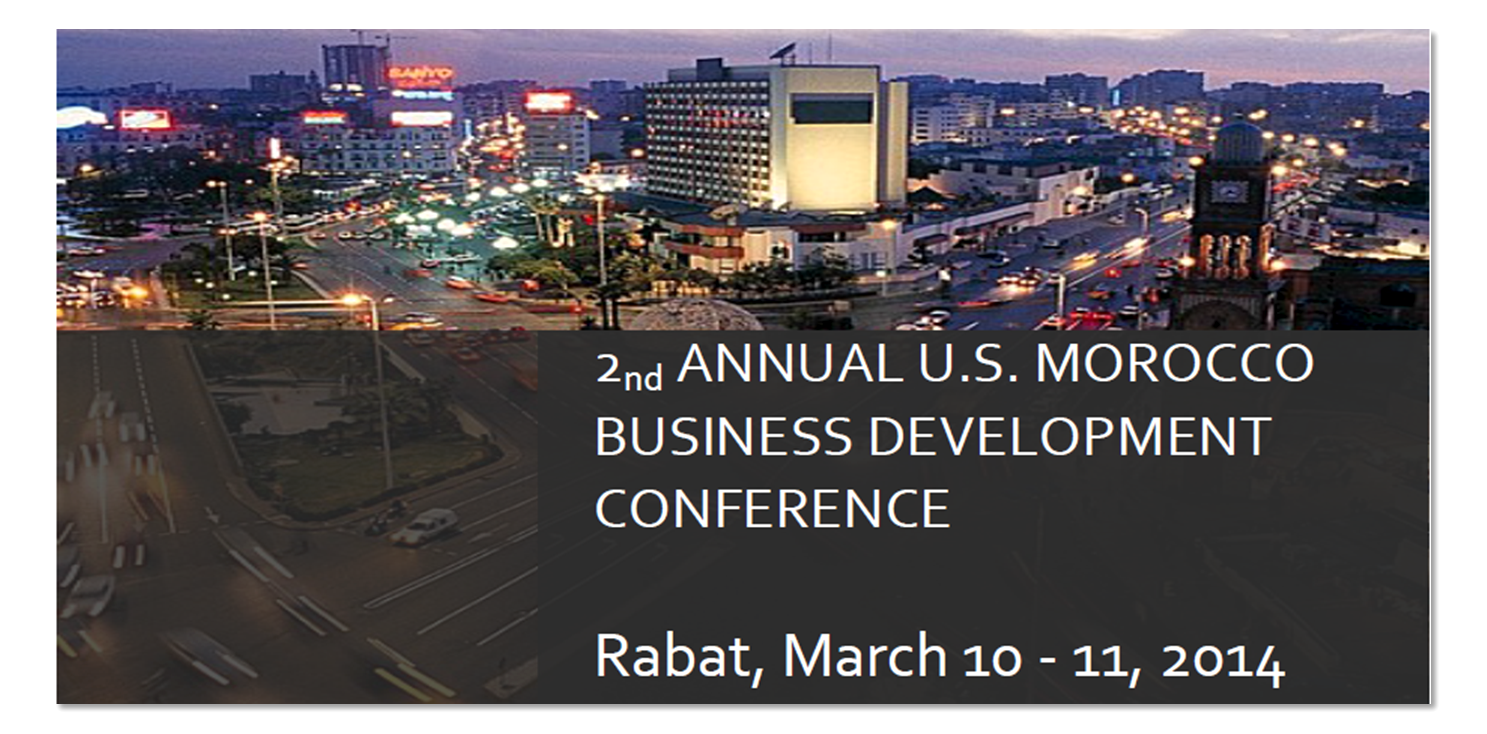Updated
The Business Case for Morocco as the Regional Trade and Investment Hub – Jean R. AbiNader

..

Jean R. AbiNader, Exec. Dir., Moroccan American Trade and Investment Center
Jean R. AbiNader, MATIC
January 30, 2014
Recent articles and reports make a strong case for companies to locate in Morocco to do business in the Maghreb, Sahel, and West and Central Africa as far south as Nigeria.
The recent announcement of the 2nd Annual Morocco-US Business Development Conference, to be held in Rabat on March 10-11, illustrates the importance of this reality – fully one-third of the first day is devoted to “Morocco as a trade and investment partner for the development of Africa.” In addition, African companies and agencies have also been invited to participate in the program.
The respected website Zawya, quoting the IMF, Barclay’s, and Fitch Ratings, summarized keys steps that Morocco is taking to continuing its growth despite the weakness in its key trading partners in Europe and turmoil in other parts of North Africa.
These include eliminating fuel subsidies, continuing to privatize major infrastructure – in this case the port operator Marsa Maroc, and introducing the parliamentary bill to regulate Islamic banks and the issuing of sukuk bonds, which will provide a boost in securing additional investment financing from the Arab Gulf countries.
The article concludes with a positive prognosis that “Renewed optimism in Europe should also lift Morocco’s prospects. And with Gulf and multi-lateral institution aid pouring into the economy, the country is easily the most stable North African country with the brightest prospects.”
Christine Lagarde, Director General of the IMF, commented in late January on Morocco’s success is pursuing economic reforms, going so far as to call it a model that others should consider.
And the US Commercial Service will be holding a webinar, “Discover North Africa,” on February 11.
(More information, including time and registration fee is available at http://go.usa.gov/BcPF or contact the friendly and helpful commercial officer: Doug Wallace in Casablanca – douglas.wallace@trade.gov.)
Useful Details for US Companies
Doing Business 2014 – Arab World, the annual joint publication of the IMF and World Bank, breaks down some of the key advantages of Morocco as the platform for regional business development.
As mentioned in earlier blogs, Morocco has already invested in the Casablanca Finance City (CFC) complex as the financial services hub to the region and has signed several significant banking and services providers as early tenants.
Buried within the data are several important factors that should be useful to US companies looking at Morocco’s added value as an investment and business destination.
At the top of the list is that Morocco is the least expensive point of origin in all of the Middle East and North Africa (MENA) countries for exports to the US, based on a per-container price.
This is a key issue when looking at purchasing goods produced in Morocco for US/NAFTA markets and suppliers. As important is that Morocco is best in the region for the number of days it takes to transport exports thus facilitating trade to regional markets in Africa and Europe.
Another outstanding ranking is “ease of starting a business,” where Morocco is not only the best in the region but even beats the OECD high-income countries. Related to this is its strong ranking for the number of procedures it takes to start a business (5), for which Morocco is tied for first, and it is also the best in North Africa for number of days (11) to complete the process.
These indicators and the zero percent required for paid-in minimum capital to start a business (how much you have to have on hand), as well as this year’s reduction in company registration fees, enable small and medium-size enterprises to access the market with relative ease. Morocco also receives high marks for how simple it is to pay taxes – best in the region.
Looking Ahead
Morocco is working very hard to improve both the physical and legal mechanisms for streamlined logistics and movement of goods and services. It is investing hundreds of millions of dollars in port expansion, improved rail and freight services, airport freight capacity and handling, commercial law, customs procedures, access to international shipping and distribution regimes, and an open and flexible financial services sector.
These steps and the continuing reforms in the legal system, labor codes, and the movement of capital will only enhance Morocco’s efforts to become the region’s #1 platform for regional trade, services, and investment.
Jean R. AbiNader is Executive Director of the Moroccan American Trade and Investment Center.
Co-published with Fair Observer (www.fairobserver.com).